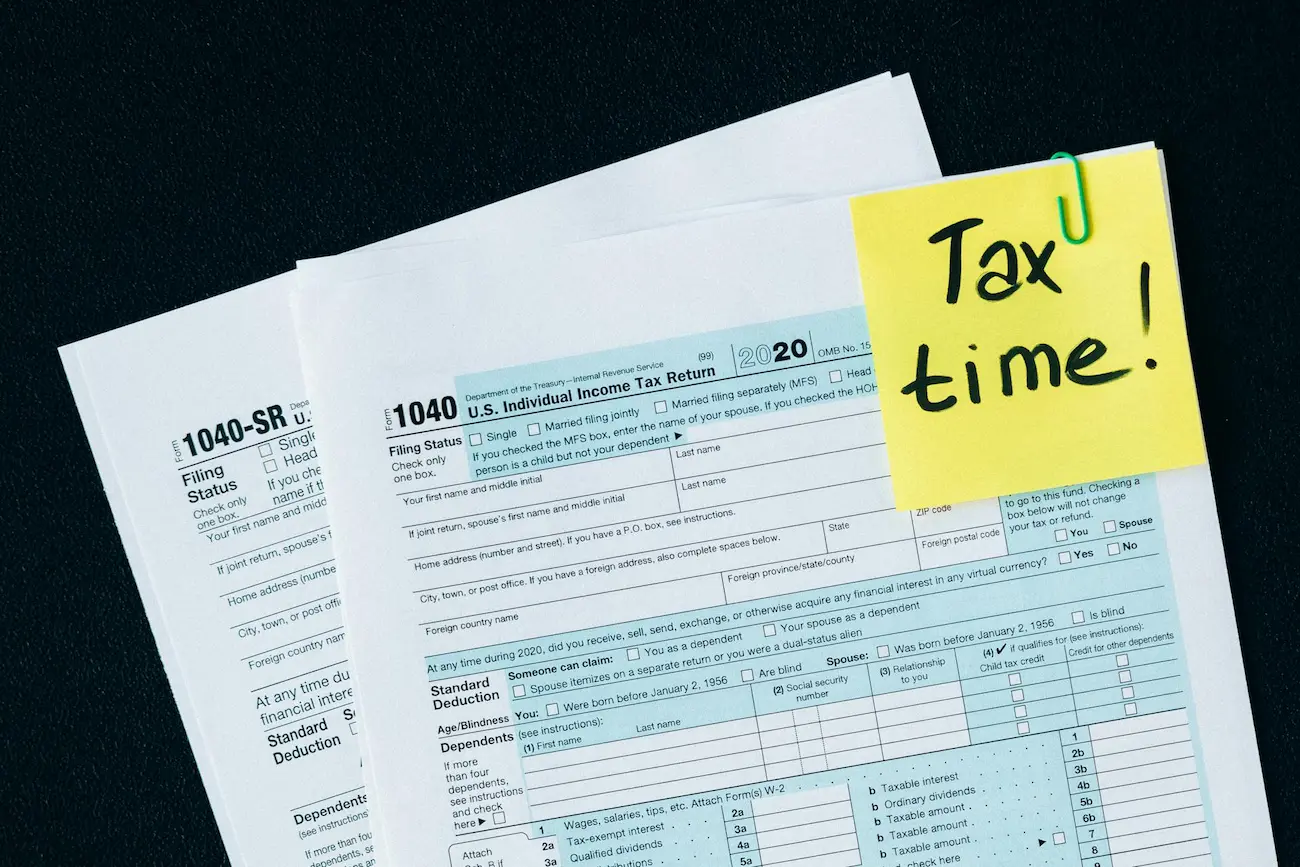Tax planning is sometimes a daunting task for small business owners. It’s full of complex rules, confusing terminology, and countless forms that must be filled out correctly. Yet, understanding small business tax planning is more than staying on the right side of the law. It’s also about leveraging the system for the financial benefit of your business.
Strategic tax planning is about more than just paying your taxes. It’s about understanding the different types of taxes your business needs to pay, identifying the eligible deductions, planning for future tax liabilities, and taking advantage of any tax credits and incentives available. Implementing a strategic approach to your taxes can significantly impact your bottom line, freeing up more resources for you to invest back into your business. This blog will provide a comprehensive guide to small business tax planning, helping you navigate this complex but crucial aspect of running a successful business.
Understanding Small Business Taxes
Small business taxes can be complex, but every business owner needs to understand them. Knowing what types of taxes your business must pay and when can save you from unnecessary fines or legal issues. Let’s break down the most common types of taxes that small businesses need to consider.
Income Tax
Income tax is a tax on the profits that your business makes. It’s determined by subtracting your business expenses from your business income. Remember, all businesses except partnerships must file an annual income tax return, with the due date typically falling on April 15th.
Self-Employment Tax
Self-employment tax is primarily for individuals who work for themselves and covers Social Security and Medicare taxes. If you’re a sole proprietor, an independent contractor, or a freelancer, you’re likely subject to self-employment tax. It’s important to note that you usually must pay self-employment tax if your net earnings are $400 or more.
Employment Taxes
If you have employees, you’ll need to pay employment taxes. It includes withholding federal income tax from employees’ wages and paying Social Security, Medicare, and federal unemployment taxes. It’s crucial to understand your obligations as an employer to avoid penalties.
Key Tax Planning Concepts
Tax Deductions and Credits
Understanding tax deductions and credits can significantly reduce your tax bill. Deductions lower your taxable income, with common ones being business expenses such as rent and supplies. On the other hand, tax credits offer a dollar-for-dollar reduction on your actual tax owed. Both can provide considerable savings, so it’s essential to identify all the deductions and credits your business is eligible for.
Depreciation Strategies
Depreciation strategies allow businesses to spread out the cost of an asset over its useful life. Correctly classifying assets for depreciation is crucial, as different assets depreciate at different rates. Accelerated depreciation methods can offer significant short-term tax benefits by allowing you to deduct more in the early years of an asset’s life. Understanding these methods can help improve your cash flow and reduce tax liability.
Entity Structure Impact
Your business structure can significantly impact your tax obligations. Sole proprietorships are simple but expose owners to personal liability for business debts. Other structures like LLCs, corporations, and partnerships offer different tax advantages and protections. Understanding the tax implications of each structure can help you choose the best option for your business.
Timing Strategies
Choosing between a fiscal year and a calendar year is one of the first decisions you’ll make when setting up your tax planning strategy. A fiscal year, which doesn’t necessarily start in January, can benefit businesses with fluctuating income due to seasonal operations. It allows you to align your financial year with your business cycle, making it easier to manage cash flow and plan for taxes. On the other hand, a calendar year, which runs from January to December, can simplify your bookkeeping and align with personal tax schedules.
For many small businesses, paying quarterly estimated taxes is a key part of their timing strategy. By spreading out tax payments throughout the year, you can avoid a big tax bill at the end of the year and better manage your cash flow. It’s like a pay-as-you-go system, helping you stay on top of your tax obligations. However, calculating these estimates requires understanding your income and deductions, so it’s important to keep accurate records and adjust your estimates as needed.
Record Keeping Best Practices
Maintaining accurate records is the backbone of effective tax planning. These records provide a snapshot of your business’s financial health and serve as a roadmap for your tax returns. They help you keep track of deductible expenses, calculate your taxable income, and substantiate your claims if you’re audited. Remember, good record-keeping can save you time, stress, and, potentially, money.
In today’s digital world, there are numerous tools available that can make record-keeping more efficient and less tedious. Software like QuickBooks, FreshBooks, and Zoho Books can automate various aspects of bookkeeping, reducing potential errors. They also allow you to easily access and analyze your financial data, which can help you make informed decisions about your business. By embracing these digital tools, you can spend less time on bookkeeping and more time growing your business.
Tax Compliance and Reporting
Understanding and complying with tax filing requirements is critical for all businesses. These requirements, which include what forms to file, when they need to be filed, and what information they require, can vary based on the nature and structure of your business. Keeping up-to-date with these requirements ensures you’re not missing any important deadlines or overlooking any deductions. It’s a lot to keep track of, but it’s crucial for avoiding problems down the line.
Failing to comply with tax laws can have severe repercussions. If you miss a deadline, underreport income, or make errors on your tax return, you could face penalties, interest charges, and even legal issues. These penalties can add up quickly, causing financial strain and damaging your business’s reputation. Therefore, it’s essential to understand your tax obligations and take steps to ensure you’re fully compliant.
Employee Tax Considerations
If you have employees, payroll taxes are vital to your tax responsibilities. These taxes, which include Social Security and Medicare taxes, federal and state unemployment taxes, and any other local taxes, must be accurately calculated and paid on time. It’s essential to stay updated on current tax rates and changes to ensure you’re withholding and remitting the correct amounts. Keep in mind that any mistakes can lead to penalties and damage to your business’s reputation.
Offering employee benefits like health insurance, retirement plans, and education assistance can provide tax deductions for your business. However, these benefits and deductions must be properly documented and reported to avoid tax issues. They also impact your employees’ taxes, so it’s essential to communicate clearly about these benefits. Handling these matters can lead to happy employees, potential tax savings, and a stronger business.
State and Local Tax Obligations
State tax regulations can be a complex maze for small businesses. Each state has its rules regarding sales, income, and property taxes. Understanding these rules and how they apply to your business operations is important. Staying updated with changes in these regulations can help you stay compliant and avoid penalties.
On top of state taxes, you may also consider local tax implications. Some cities or counties impose their taxes on businesses. These could include taxes on gross receipts, payroll, and even specific industries. Understanding these local tax obligations can prevent unexpected costs and help you plan your budget more accurately.
International Business Tax Considerations
You’ll need to navigate international tax laws if your business involves cross-border transactions. Countries have different tax rates and regulations, which can affect profitability. You’ll need to understand these differences to avoid double taxation and to optimize your tax planning. Knowledge of foreign tax laws can give you a competitive edge in the global market.
Tax treaties between countries can significantly impact international businesses. These agreements can relieve double taxation, making it easier to do business internationally. Understanding the terms of these treaties and how they apply to your business is crucial. Consulting with an international tax expert can be beneficial in this regard.
Year-End Tax Planning
Year-end is a critical time for tax planning. Reviewing your financial statements helps you identify potential tax deductions and credits. It’s also a chance to assess your business’s overall financial health. This review can guide your decisions for the upcoming year and help you prepare for tax season.
Closing the tax year strategically can bring significant tax benefits. It could involve deferring income to the next year or accelerating deductions into the current year. It’s all about timing your income and expenses to minimize your tax liability. Remember, a little planning now can save you a lot of money later.
Tax Planning for Specific Industries
Understanding tax planning strategies specific to your industry is critical to financial success. Let’s delve into the unique tax considerations for retail, service-based businesses, and manufacturing and production industries.
Retail
Retail businesses often have a variety of expenses that can be leveraged for tax deductions, such as inventory costs, property rent, and advertising expenses. Sales taxes are also a crucial area of focus, with policies varying significantly by location. A well-planned strategy can help maximize deductions and effectively manage sales tax obligations.
Service-Based Businesses
For service-based businesses, income is typically taxed as earned, so deferring income can be an effective tax strategy. Other common deductions include office, travel, and professional development expenses. Understanding these can help minimize tax liability and improve the business’s overall financial health.
Manufacturing and Production
Manufacturing and production industries often deal with substantial equipment and raw materials costs. These costs can often be depreciated over time, providing significant tax benefits. Additionally, specific tax credits may be available to these industries, such as those for energy efficiency or research and development.
Technology and Small Business Taxes
Technology can make small business taxes more manageable. Tax software can automate calculations, track deductions, and even file taxes. Plus, the cost of this software is often tax-deductible. Investing in technology not only simplifies tax preparation but can also save you money.
If you operate an e-commerce business, you must understand its unique tax implications. These could include sales tax obligations for online sales and understanding tax rules in different jurisdictions. The world of e-commerce taxes can be complex, but it’s crucial to get it right. Using e-commerce-specific tax software can be a big help in this area.
Hiring a Tax Professional
Hiring a tax professional can be a wise decision for many small businesses. They can provide expert advice, ensure you comply with tax laws, and help you find deductions and credits. Their fees are usually tax-deductible, making their services even more valuable. A tax professional can relieve the stress of tax season and save you money.
Choosing the right tax advisor is just as crucial as hiring one. You’ll want to look for someone with experience in your industry and a good understanding of small business taxes. Ask for recommendations, check credentials, and schedule a consultation before deciding. The right advisor can be a valuable partner in growing your business.
Summary
Small business tax planning is more than just an annual obligation – it’s a strategic tool that can significantly impact your bottom line. By understanding and implementing tax strategies tailored to your retail, service-based, or manufacturing and production industry, you can maximize deductions, manage obligations, and improve your financial health. It’s about taking a proactive approach, staying informed about the latest tax laws, and aligning your strategies with your long-term business goals.
Furthermore, remember that tax planning isn’t just a once-a-year activity. It should be an ongoing process considering each decision’s long-term benefits. Whether choosing the proper business structure, identifying all potential deductions and credits, or understanding depreciation strategies, each step can make a significant difference. So embrace tax planning as a vital part of your business strategy, and watch your business thrive.







